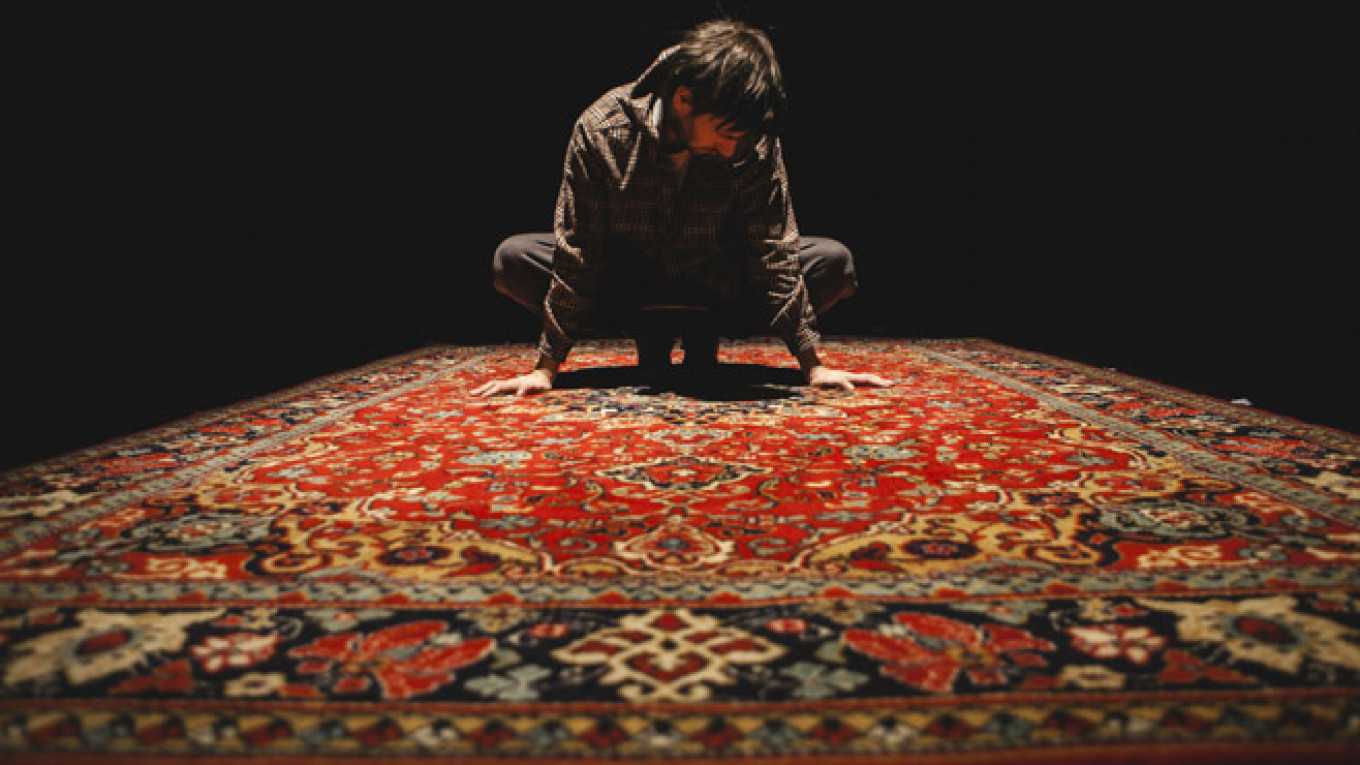Allow me to break all the rules of the critic's job by giving away the end of Liquid Theater's "Program: Time" right now. It's such an ideal ending of a performance that it makes a good beginning for an account about that performance.
An elderly woman appears on a television monitor and tells about the etiquette for riding a bus in the old days. When you got on at your stop, she says, you'd pass your ticket person-by-person to a ticket taker sitting at the other end of the bus. They would stamp or punch the ticket and everybody along the way would pass it back to you.
Now, although this practice in Moscow fell by the wayside at least a decade ago, if not two, it is not this particular story about time that the woman has in mind. No, this is where the story just starts to kick in: "At first people passing tickets along called me 'little girl,'" she recalls. "Then it was 'young woman.' Then 'lady,' then 'granny.'"
That is when she follows with the punch line, assuming you agree with me that this is a humorous tale: "That's how I learned I was a granny. I hadn't known that!"
It's beautiful, funny and devastatingly true. As one who recently received a pensioner's card to ride Moscow's public transit for free, I know of what I speak.
Liquid Theater creates what is known in the West as devised theater. That is, the participants don't put on plays but come together, work out a theme that all the participants are interested in, and then they go about cobbling together a performance with all the tools they have at their disposal. That usually means a bit of dance, a bit of mime, a song or two, and much work with physical objects.
"Program: Time" came about when the actors — all of them relatively young — began to think about old age. Not quite having first-hand knowledge of the topic, except, one assumes, what they may have seen at home, they went out into the world and talked to people whose long lives have made them go gray, lame and weaker than they ever remember being.
"I once was young, handsome and strong," one elderly man says with smile. "Thanks for that, at least!"
The stage is scattered with junk on an old rug, loosely surrounded by a series of three monitors. They show slow motion films of the junk being dumped and picked back up. As we watch the film loops repeat we recognize the "junk" as the detritus of an individual's life. These are objects that once were important but now are nothing but trash.
The actors take turns burrowing into the junk and emerging from it with the help of their partners, as if they are zombies come to life. They stagger to the edge of the stage, as if old, infirm and decrepit.
Soon enough, however, voices of those who have actually lived to old age begin to segue with danced or mimed interpretations of those words. "I get tired quicker. I walk with difficulty. I get depressed. I don't remember," says one interviewee. Another tells of his first kiss and getting caught as things got hot.
The performers — Darya Demidova, Svetlana Kim, Oleg Tolkunov and Dmitry Melkin — interpret the states of mind and body that they have heard about. Sometimes they skip across the stage with the light buoyancy of youth. Once they gather in a corner of the stage and sing an airy French song of love while the monitors show images of the singer being made up as an old woman.
It is important that the company makes no effort to rob the topic of aging of its dramatic and tragic aspects. This isn't a feel-good take on old age, or, to be exact, it isn't only that. It is an honest look at a stage of life that most individuals in the hall — dare I say, the fortunate ones? — will experience on their own sooner or later.
"Program: Time" (Programma: Vremya) plays April 11 and 12 at 8 p.m. at Project Fabrika, located at 18 Perevedenovsky Pereulok, entrance 1. Take trolleybus No. 25 from Metro Elektrozavodskaya or Kitai-Gorod to Bakuninskaya 84 stop. Tel. 916-956-5301. Running time: 1 hour, 15 minutes.
Contact the author at artsreporter@imedia.ru
A Message from The Moscow Times:
Dear readers,
We are facing unprecedented challenges. Russia's Prosecutor General's Office has designated The Moscow Times as an "undesirable" organization, criminalizing our work and putting our staff at risk of prosecution. This follows our earlier unjust labeling as a "foreign agent."
These actions are direct attempts to silence independent journalism in Russia. The authorities claim our work "discredits the decisions of the Russian leadership." We see things differently: we strive to provide accurate, unbiased reporting on Russia.
We, the journalists of The Moscow Times, refuse to be silenced. But to continue our work, we need your help.
Your support, no matter how small, makes a world of difference. If you can, please support us monthly starting from just $2. It's quick to set up, and every contribution makes a significant impact.
By supporting The Moscow Times, you're defending open, independent journalism in the face of repression. Thank you for standing with us.
Remind me later.







